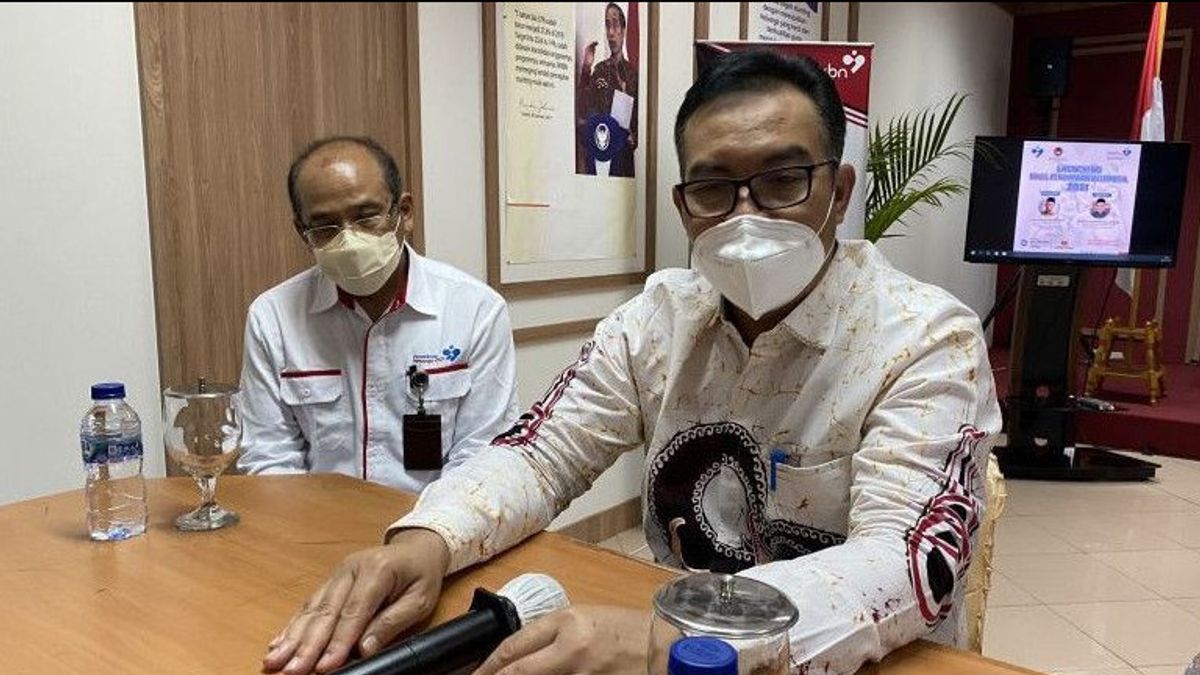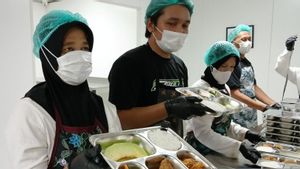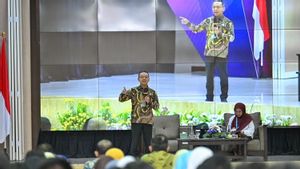JAKARTA - The National Population and Family Planning Agency (BKKBN) has launched the results of the 2021 Family Data Collection (PK21), which can be used by local governments to plan human resource development in every region in Indonesia.
“The data is closely related to the need to identify families at risk of stunting. We will assist in digesting the data and then analyzing the data, who in the region has a family at risk of giving birth to stunting children," said Head of the BKKBN Hasto Wardoyo at the launch of the 2021 Family Data Collection Results in Jakarta, Thursday, November 4.
Hasto said that family data collection was carried out simultaneously throughout Indonesia by data collection cadres from April 1 to May 31, 2021. However, the COVID-19 pandemic caused his party to extend the data collection period until July 6, 2021.
From the data collection, the number of families who were successfully recorded was 68,478,139 families or 102 percent, from the previously targeted number of 66,828,571 families.
The collection of all family data was obtained in two ways, namely 30 percent through the F/1/PK/21 form which was carried out in the sub-district using the counseling center, and 70 percent was done by entering data through the help of an application on a smartphone by the cadres.
He said that if the collected data exceeded the set target, the local government could use it to map areas in their area that had the potential for stunting. prosperity, sanitation, access to clean water, uninhabitable houses and low maternal education.
Hasto hopes that through the data collected, local governments can immediately map the problems that exist in their respective regions related to family and family health, especially in stunting prevention.
“Use this data in each regional development plan. And map the problems that exist in the area that are related to families, family health, especially stunting," he said.
Deputy for Coordination for Health Quality Improvement and Population Development at the Coordinating Ministry for Human Development and Culture Agus Suprapto said the data could be of great help in several dimensions apart from dealing with family problems.
“The data by address will help several dimensions such as the health dimension and other social dimensions. The basis for specific and sensitive interventions is convergence between programs from ministries or agencies so that they are right on target,” said Agus.
According to Agus, by covering 63 family data collections, 14 population variables, 11 planning variables, 32 family development variables and 6 stunting potential variables, it is considered sufficient to achieve the target in 2024.
He hopes that the launched family data can be used properly by ministries or institutions that need it and can be synchronized with data such as the Population Census and the National Socio-Economic Survey (Susenas).
"We hope that with the launch of this family data, all parties can use it well, so as not to lose the momentum for its use," he said.
The English, Chinese, Japanese, Arabic, and French versions are automatically generated by the AI. So there may still be inaccuracies in translating, please always see Indonesian as our main language. (system supported by DigitalSiber.id)













